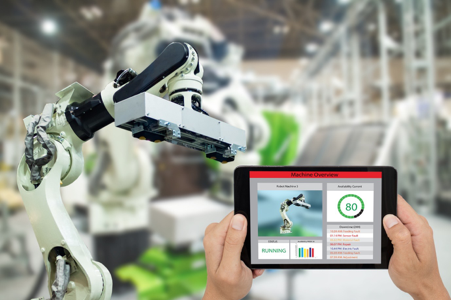
The Internet of Things is just around the corner, we're told, yet like a glittering prize revealed in a dream, it remains tantalizingly out of reach. The grand vision for IoT is a future in which billions of autonomous devices coexist, communicating seamlessly, exchanging data from endpoints to the cloud.
A world where information can be processed and mined for value-generating insights and no device is too small or insignificant to be made "smart" through the addition of sensors. That vision has begun to coalesce, even if public perception of IoT is still lagging.
Despite evidence which points to an imminent Cambrian explosion of IoT devices, including 21% growth of automotive IoT endpoints to a predicted 5.8 billion by 2020, the public has yet to be wooed. The ethereal nature of IoT makes visualizing it a difficult task for humans, whose primary means of appreciating any given technology is through interaction. How do you sell something you can't see, hear, touch, taste or smell? In the end, it comes down to the old sales maxim: it's about the benefits, not the features. So far, many of the benefits of IoT have been limited in their scope, failing to capture the imagination of consumers.
Consumers, it should be noted, are not the primary audience IoT is intended for at this juncture, but the manifestation of a fully functional Internet of Things will occur when it has trickled down into the public consciousness and permeated everyday life. Bridging the gap between IoT being "a thing" and becoming "the thing" calls for fixing up the final impediments to realizing the vision of a hyperconnected, sensor-enabled world.
Perhaps the greatest challenge is finding a way to enable and incentivize different devices to work together autonomously in a way that will benefit both them and their operators. One company endeavouring to resolve that dilemma is Fetch.ai, whose blockchain solution is designed specifically for transmitting data between the sort of devices that are tailor-made for IoT: cheap, lightweight, and capable of communicating via 5G.
Refining the rails for IoT transmission
One of the areas where Fetch.ai has the potential to make a technological leap is motoring, where automotive endpoints are rapidly proliferating. One example is the inefficient and stressful task of trying to find a parking space during rush hour traffic or other busy periods. Parking agents developed by Fetch.ai use AI and machine learning algorithms to help identify parking spaces in real-time and share that information with car agents. Those car agents can then autonomously reserve those spaces and pay for them based on the driver's preferences.
In 2018, traffic jams cost the US economy $78 billion and it is estimated that 30% of the cars in congested city traffic are looking for parking spaces. With the faster identification and more efficient allocation of parking spaces, such snarl-ups can be dramatically reduced. Fetch.ai's potential benefits to motorists are not limited to parking alone, as the protocol can be leveraged to improve the wider transport network, such as when locating charging stations and optimizing the travel routes of vehicles so as to avoid creating congestion in the first place.
Interoperability Is Key
What's crucial about blockchain-based systems like Fetch.ai is that their decentralized design ensures data is not siloed and at the mercy of anyone tech company. At the moment, vast swathes of user information are siloed away in the databases of tech giants such as Alphabet (Google), Amazon and Apple. These companies own and sell user data, storing it on centralized servers where it is vulnerable to attack by third parties. Worse still, this archaic model is preventing IoT from realizing its full potential. After all, for consumers and enterprises to permit the collection and storage of data gathered from their devices, there needs to trust in the rails used to transport it and the repositories used to contain it.
What Fetch.ai does for data is create ecosystem infrastructures in which billions of connected devices can find and communicate with each other seamlessly, autonomously and securely. It is a system in which individual users control and manage their data, sharing only what is appropriate at their own choosing, secured on a decentralized blockchain that does not present a single point of failure that hackers can exploit. It is this model of data sharing that will unlock the true promise of IoT. In this system, when users decide to share their data, it will be they who are compensated in the form of services or direct remuneration - not the tech companies.
Although IoT is still awaiting its OMG moment - the point at which its benefits can be seen, and not told - the final pieces of the puzzle have already been designed and minted. All that's left to do is slot them into place, whereupon the IoT dream will come to life.
ⓒ 2025 TECHTIMES.com All rights reserved. Do not reproduce without permission.




